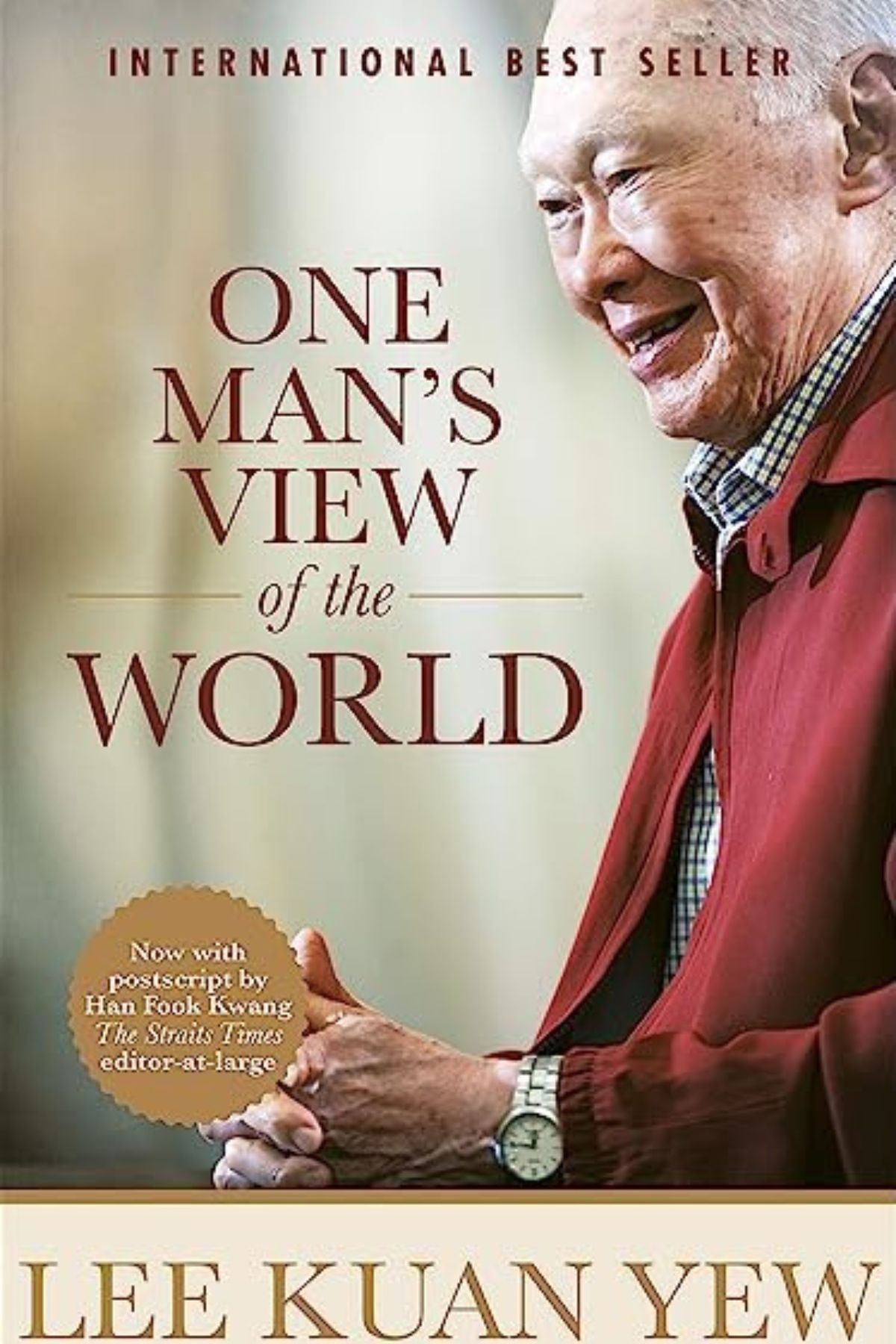“If Singapore is a nanny state, then I am proud to have fostered one.”
- Lee Kuan Yew
I do not remember exactly how I first learned of One Man's View of the World, written by Lee Kuan Yew, Singapore's founding father and long-time leader. I must have come across it while browsing Goodreads, where I saw the book had stellar reviews and ratings — one of my criteria for deciding a book is worth reading, even considering the risk I might miss some hidden gems that way. I had heard Lee's name and knew his reputation as one of the twentieth century's greatest statesmen. Thus, I became quite curious to gain personal insight into his perspectives shaped through decades on the global stage.
One Man's View of the World covers Lee Kuan Yew's nuanced understanding of countries, regions and global challenges that remain salient despite being written back in 2013. It is a testament to his incredible foresight. When discussing nations, he analyzes a wide range of factors, including prospects, economics, societal issues and politics that shape their trajectories. The book also contains chapters dedicated to assessing pressing global topics like climate change and energy dependencies.
Lee's decades of meetings and relationships with top leaders worldwide give him an expansive view of the world. The early chapters on China and America capture my interest in particular, given their enormous influence globally. Lee highlights pressing issues China has - export-led growth model, worsening inequality and overreliance on centralized authority. Indeed, current deflation and real estate unrest seem to validate his concerns. Meanwhile, even though America's leading position in the world is unlikely to change for the next ten or twenty years, mounting debt and immigration are the roadblocks that give it headaches. I agree with his idea that an open environment for innovation and talent is perhaps America's core competitive edge over any other country in the world.
Beyond politics, Lee's discussion on the importance of language, culture and history is equally fascinating. Countries such as Singapore's unprecedented development owes partly to mandating English as the common tongue. It connects Singapore with the world. As a comparison, neighbours such as Malaysia and Indonesia mandated their local languages have progressed more slowly. Perhaps the resistance to adopting English as a first language is more than just a change in means of communication; it's about one country's cultural pride and essence. The Middle East recently gained a lot of media coverage amid events like COP23 and the Israel-Gaza conflict. While we have seen Dubai's rise, Lee underscores that other regions still follow tribal or feudal systems where women's creativity and productivity are locked down. Changing the system that has been relied on and regarded as the norm takes years. Lasting solutions cannot be imposed overnight by Western powers.
Lee's perspectives on climate change and renewable energy are also intriguing. Ever since a few years ago, discussion around this topic has just gone rocket high. Companies and governments worldwide have reacted, but progress so far seems more like thunder than rain. We remain ultimately driven by economic incentives aligned to our finite lifetimes, unable to see a future distant from what we can experience ourselves. Petroleum still dominates as the primary energy source globally, and viable transition plans to so-called carbon-neutral models seem unclear despite loud announcements.
I was struck by how much Lee's life wisdom resembled famed investor Charlie Munger's in emphasizing broad exposure to ideas, history and culture as the wellspring of wisdom. Both also exhibited a remarkable clarity late into life about their mortality that I found inspiring. While one might ask what weaknesses this book has, I struggled to find any substantive issues. I wanted to highlight that the book provides high-level discussion around many complex topics, which would be unrealistic to expand fully in one volume. Instead, it is an excellent blueprint across areas like societal development that prompts deeper investigation, each of which likely requires extensive further learning.
